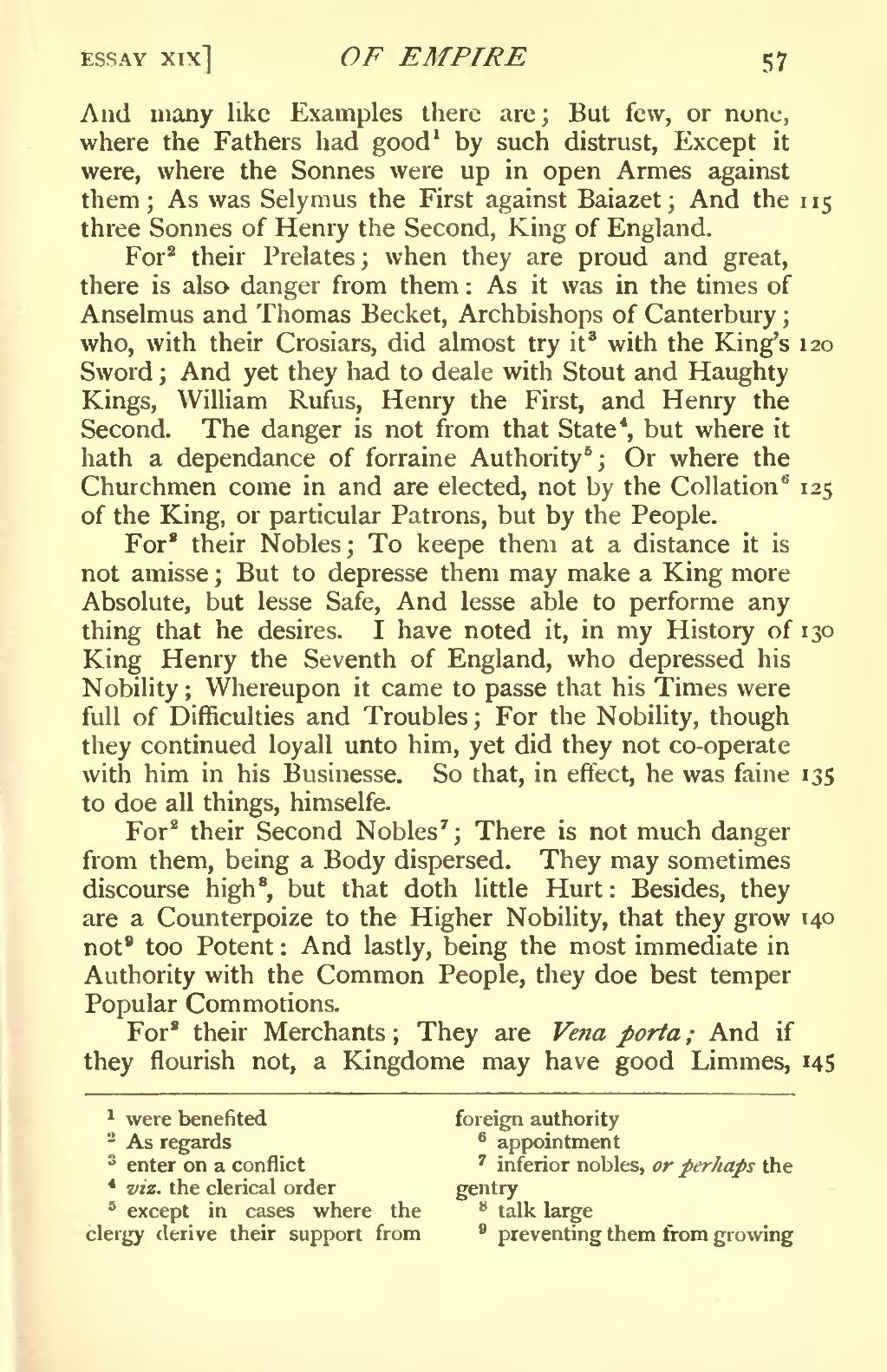And many like Examples there are; But few, or none, where the Fathers had good[1] by such distrust, Except it were, where the Sonnes were up in open Armes against them; As was Selymus the First against Baiazet; And the three Sonnes of Henry the Second, King of England.
For[2] their Prelates; when they are proud and great, there is also danger from them: As it was in the times of Anselmus and Thomas Becket, Archbishops of Canterbury; who, with their Crosiars, did almost try it[3] with the King's Sword; And yet they had to deale with Stout and Haughty Kings, William Rufus, Henry the First, and Henry the Second. The danger is not from that State,[4] but where it hath a dependance of forraine Authority;[5] Or where the Churchmen come in and are elected, not by the Collation[6] of the King, or particular Patrons, but by the People.
For[2] their Nobles; To keepe them at a distance it is not amisse; But to depresse them may make a King more Absolute, but lesse Safe, And lesse able to performe any thing that he desires. I have noted it, in my History of King Henry the Seventh of England, who depressed his Nobility; Whereupon it came to passe that his Times were full of Difficulties and Troubles; For the Nobility, though they continued loyall unto him, yet did they not co-operate with him in his Businesse. So that, in effect, he was faine to doe all things, himselfe.
For[2] their Second Nobles;[7] There is not much danger from them, being a Body dispersed. They may sometimes discourse high,[8] but that doth little Hurt: Besides, they are a Counterpoize to the Higher Nobility, that they grow not[9] too Potent: And lastly, being the most immediate in Authority with the Common People, they doe best temper Popular Commotions.
For[2] their Merchants; They are Vena porta; And if they flourish not, a Kingdome may have good Limmes,
